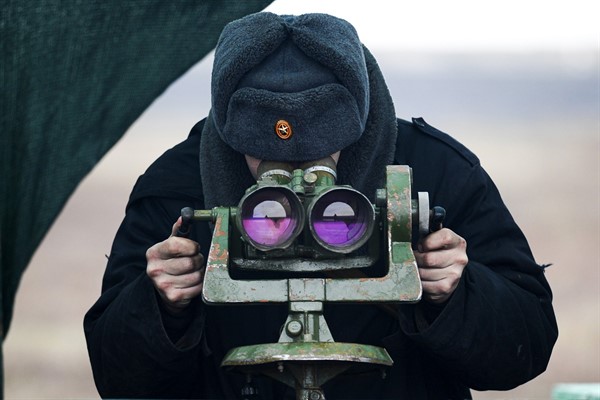When the Soviet Union collapsed three decades ago, the European security architecture suddenly became uncertain, its future put in play. After all, much of the postwar balance of power in Europe—and the world—had rested on the icy pillars of the Cold War, pillars that in 1991 abruptly melted. It didn’t take long, however, before the euphoria of freedom in the former Soviet bloc was translated into a series of diplomatic agreements enshrining a vision of cooperation, democracy and respect for independent states.
Those same agreements now lie in ruins, trampled by Russia’s anti-democratic turn and President Vladimir Putin’s determination to strengthen the Kremlin’s influence over its increasingly democratic neighbors.
With tens of thousands of Russian forces now massed near the Russia-Ukraine border and Putin making impossible demands on the West, the agreements of the 1990s offer a stark reminder of how mistaken the expectations of those years proved to be, and how unreliable Putin is in keeping his country’s commitments.

